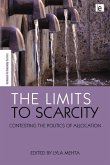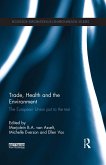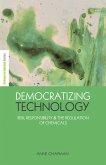Theoretical and empirical chapters by leading academics and scholar-activists grapple with these issues by questioning scarcity's taken-for-granted nature. They examine scarcity debates across three of the most important resources - food, water and energy - and their implications for theory, institutional arrangements, policy responses and innovation systems.
The book looks at how scarcity has emerged as a totalizing discourse in both the North and South. The 'scare' of scarcity has led to scarcity emerging as a political strategy for powerful groups. Aggregate numbers and physical quantities are trusted, while local knowledges and experiences of scarcity that identify problems more accurately and specifically are ignored. Science and technology are expected to provide 'solutions', but such expectations embody a multitude of unexamined assumptions about the nature of the 'problem', about the technologies and about the institutional arrangements put forward as a 'fix.' Through this examination the authors demonstrate that scarcity is not a natural condition: the problem lies in how we see scarcity and the ways in which it is socially generated.
Dieser Download kann aus rechtlichen Gründen nur mit Rechnungsadresse in A, B, BG, CY, CZ, D, DK, EW, E, FIN, F, GR, HR, H, IRL, I, LT, L, LR, M, NL, PL, P, R, S, SLO, SK ausgeliefert werden.









